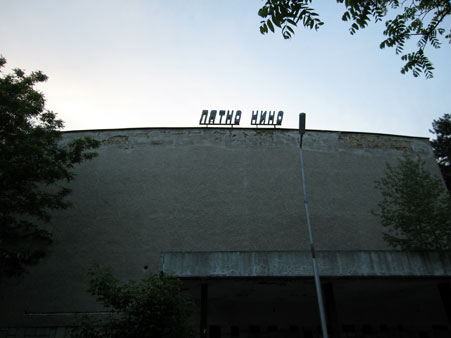M, H, L and myself set off on foot over the waste land that runs up to the saw mill on the edge of the town proper. Horses graze here and humans have tramped direct narrow paths across the open area towards the saw mill. Children are playing with a half-deflated ball, either barefooted or wearing laceless sports shoes. We get ready grins and questions we don’t understand as we pass. We walk in silence, no language in common, a few communications via gesticulation take place. Just a few minutes later we get caught in a downpour and shelter under a slightly protruding garage roof.
About a kilometre away down the slope there is a large, half-finished structure that looks both interesting and abandoned. I make a mental note to investigate it sometime.

|
|
The rain eases a little, enough for us to continue to the restaurant which is deserted except for one couple – it’s Monday and business is slow after the weekend. We meet M’s son, who takes our orders. The son-in-law wants a ‘gypsy steak’, causing general laughter. He tells me that his wife writes poetry. The rain stops, the air is clear and the sun is going down. The restaurant is close to a park in which there is a brand-new health spa hotel and an old neglected open-air cinema.
It has been closed, we are told, ‘since democracy came’. Since my meal is going to take some time to cook I decide to take advantage of the light to film the cinema.
As I walk up the hill to the park I think about the history of the Roma here. It’s not a lot different to everywhere else, a tale of discrimination, exclusion and, in the main, poverty. They are the most visible minority in Bulgaria and are, at the same time, a group that bends in the wind, strategically adapting to pressures whereever they can. They form at least 5% of the population (estimates vary, and self-reporting as ‘ethnic Roma’ in official censuses discounts all those who wish to conceal their origins). Some estimates, such as that of a recent (2007) UNICEF report, suggest a figure of over 9%. |